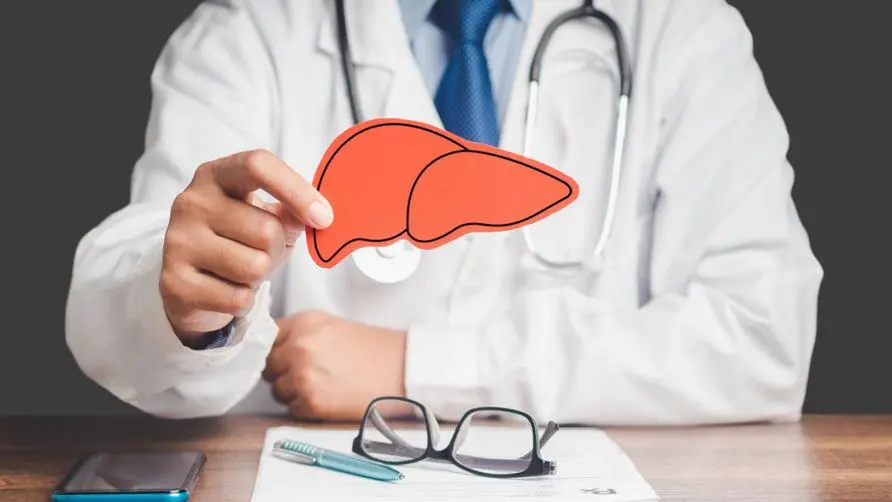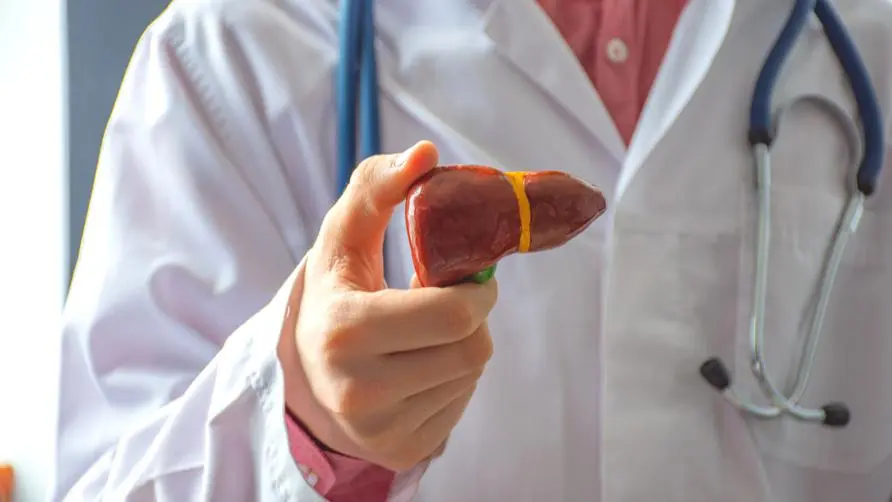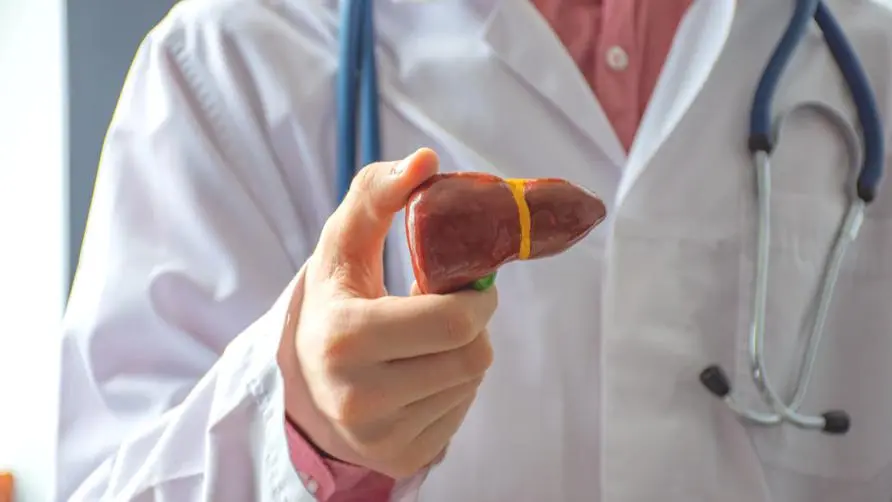What are the symptoms of liver cancer? Can young people also get liver cancer? Why can't hepatitis B and hepatitis C be postponed?

Early liver cancer has no obvious symptoms, jaundice, ascites, and vomiting blood. Is it considered to be an advanced stage?
Well-known baseball coach Wang Guanghui died of liver cancer. Liver cancer is the second leading cause of cancer death in Taiwan. About 13,000 people die from chronic hepatitis, cirrhosis and liver cancer every year. Professor Dai Jiayan, deputy director of the Chung Ho Memorial Hospital of Kaohsiung Medical University, said in an exclusive interview with “healthorn” that the liver has no innervation, and early liver cancer has no symptoms, so it is easy to be negligent and delay medical treatment, which is even more detrimental to subsequent survival and treatment.
Dr. Dai Jiayan pointed out that when liver cirrhosis reaches the end stage, patients will suffer from jaundice, ascites, etc. due to liver dysfunction. However, liver cancer does not necessarily occur in the late stage of cirrhosis and may also occur in patients with early cirrhosis or without cirrhosis. The jaundice, ascites and other conditions in these patients may be directly caused by liver cancer. Once this is the case, it often represents a symptom line and a serious condition, making the treatment of the disease more difficult.
Dr. Dai Jiayan said that the late-stage symptoms of liver cancer are similar to those of liver cirrhosis, including ascites, edema, and venous aneurysms. Once the venous aneurysm ruptures, it will cause gastrointestinal bleeding. In addition, when liver cancer invades blood vessels, it may increase the risk of venous aneurysm rupture, causing blood loss. Gushes out of the digestive tract, causing symptoms of vomiting blood. Unfortunately, if the tumor ruptures, it will cause intra-abdominal bleeding, leading to shock and even immediate life-threatening danger to the patient.
Three steps to prevent liver cancer: Beware of hepatitis B and hepatitis C
From chronic hepatitis to cirrhosis and finally to liver cancer, it is called the “liver cancer trilogy”. Dr. Dai Jiayan said that the most common cause of liver cirrhosis is chronic hepatitis. The main causes of chronic hepatitis include long-term infection with hepatitis B and C, “alcoholic hepatitis” caused by alcohol abuse, and “steatohepatitis” related to fatty liver, etc. Therefore, preventing and treating hepatitis B and hepatitis C is still an important goal in preventing cirrhosis and liver cancer.
Dr. Dai Jiayan pointed out that Taiwan was the first leader in implementing large-scale hepatitis B vaccination for newborns. Currently, the carrier rate for adults born before 74 years ago is about 15%. The carrier rate for those born after 1974 has been significantly reduced to less than 1%. Doctors remind that hepatitis B is mostly transmitted from mother to child. If you are found to be a hepatitis B patient during a health check-up, you must remind high-risk groups such as your mother, brothers and sisters to receive hepatitis B tests.
Dr. Dai Jiayan said that hepatitis C is mostly caused by blood infection, such as sharing needles, sharing toothbrushes, piercing ears or getting tattoos, etc., all of which may be at risk of infection. The most important thing to pay attention to at this stage is the problem of shared needles for drug abuse, which may also increase the risk of syphilis, AIDS, etc. It is particularly important to note that only 20% of patients who are infected with the virus can self-clear the virus, and about 70% to 80% will evolve into chronic hepatitis, with the risk of cirrhosis and liver cancer.
If you find hepatitis B or hepatitis C, don’t delay treatment. Health insurance will cover it.
The three virologists who discovered hepatitis C won the Nobel Prize in 2020, showing that hepatitis C is a major key to the prevention and treatment of liver diseases. Dr. Dai Jiayan reminded that people who had undergone surgery and received blood transfusions before 1991 were a high-risk group for hepatitis C. In order to achieve the goal of eliminating the threat of hepatitis C as soon as possible, the Taiwan Ministry of Health and Welfare currently provides adults aged 45 to 79 years old with a free screening opportunity for hepatitis B and hepatitis C. For Aboriginal people, the age limit is expanded from 40 to 79 years old. Doctors remind that as long as you are eligible, you should receive a chronic hepatitis test in time.
Dr. Dai Jiayan explained that when hepatitis B virus carriers are detected, if the virus in the blood is no longer active, they are considered “healthy carriers”. Basically, they only need long-term tracking to pay attention to whether there is any virus activation. However, if the virus is active, hepatitis B drug treatment must be considered. Currently, oral antiviral drugs for hepatitis B are covered by health insurance, which can prevent the hepatitis virus from replicating in the body. After proper treatment, there is a chance that the hepatitis B surface antigen will disappear and the patient will be completely cured.
As for the treatment of hepatitis C, there has been more significant progress than that of hepatitis B. Dr. Dai Jiayan emphasized that once hepatitis C is detected, drug treatment must be received as soon as possible to reduce the risk of subsequent progression to cirrhosis and liver cancer. The previous treatment for hepatitis C was interferon injection, which had severe side effects and poor efficacy. Oral medicines with nearly 100% curative effect are now available, and have been covered by health insurance. If people are diagnosed with hepatitis C, they should receive early treatment and have regular follow-up examinations. Patients with cirrhosis should be followed up every 3 months, and those without cirrhosis should be followed up every 6 to 12 months.
Liver cancer has different malignant degrees and may metastasize to the brain, bones and lungs in the late stages
Dr. Dai Jiayan pointed out that the malignancy of liver cancer varies. Some liver cancers grow slowly, while there are also extremely aggressive and “severely malignant” liver cancer types. When liver cancer tumors are small, they may spread within the liver or invade blood vessels, or even metastasize outside the liver. , occurs frequently in various parts of the body, and is a relatively malignant type of liver cancer. Therefore, it is recommended that patients with liver cirrhosis must undergo screening every 3 months. If it is a more malignant liver cancer, more aggressive treatments including combination therapy, liver transplantation, etc. must be considered to reduce the chance of recurrence after treatment and prolong survival.
Dr. Dai Jiayan explained that early-stage liver cancer can be cured with surgery or local treatments such as electric cautery or alcohol injection. If the disease is more severe, non-radical “embolization therapy” may be required. By performing treatment every 3 to 6 months, the patient may be able to extend his or her survival for many years. Doctors remind that when tumors invade blood vessels, or liver cancer cells metastasize to the brain, bones, or lungs, the chance of radical cure becomes very small. Fortunately, there are now targeted therapies, immunotherapy and other methods to give late-stage liver cancer a chance to be controlled. The treatment results for some terminally ill patients may be quite satisfactory, but only for a very small number of patients.
Detect liver warning signs early. Pay attention to three indicators during health check-ups.
Dr. Dai Jiayan said that the Taiwan Ministry of Health and Welfare hopes to eradicate hepatitis by 2025. When people undergo health examinations, they can pay attention to whether the “liver index” exceeds the standard. An excessive liver index indicates that liver cells have been destroyed. They should also pay attention to whether there is a “type B” test. “Hepatitis Surface Antigen” and “Hepatitis C Antibodies”. Once the screening test is positive, you must undergo further examinations, such as virology and ultrasound examinations, and treat chronic hepatitis as early as possible to protect liver health.
Doctors remind that although chronic hepatitis is more likely to occur in older people, young people are also at increased risk of chronic hepatitis due to drug use, alcoholism, etc. Young people are reminded that as long as they have chronic hepatitis, they must treat it with caution, actively treat it and follow up regularly.





